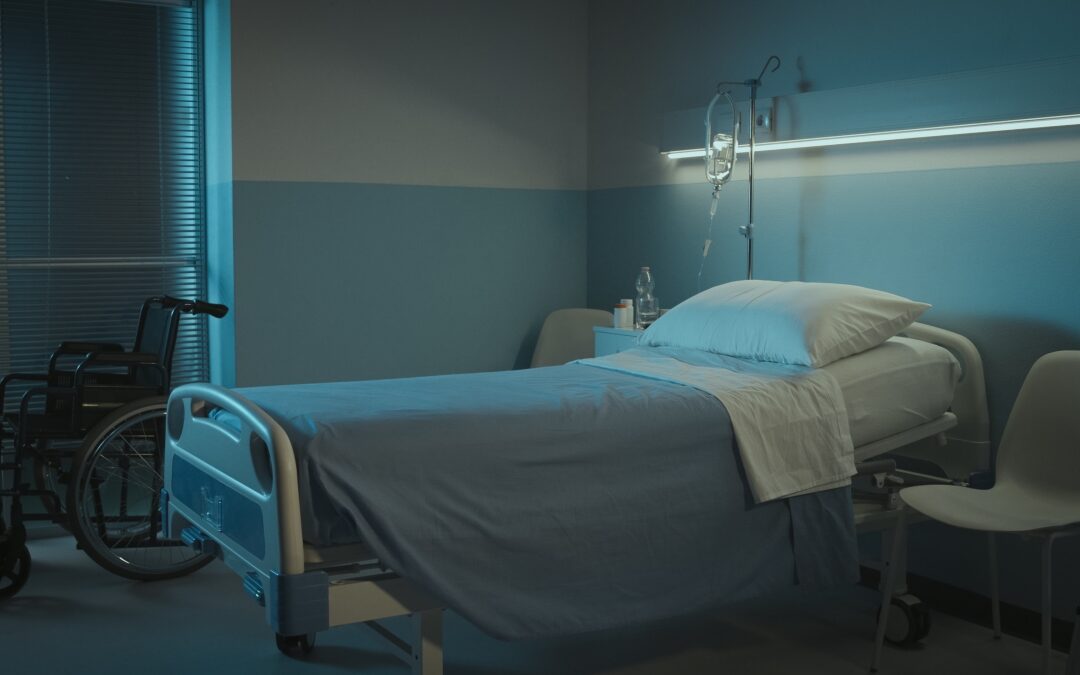
Health Equity Impact Assessment rules adopted
NY health advocates applaud new health equity impact assessment law
Affected communities will be consulted when health facilities want to reduce, eliminate services
Statewide health advocacy coalitions applauded today’s state adoption of final rules to implement the
state’s new Health Equity Impact Assessment law. The rules, approved by the state Public Health and
Health Planning Council, will require an independent assessment of the likely impact on medically
underserved people when hospitals and other health facilities seek state approval to change ownership or to reduce, eliminate or relocate services.
For the first time, hospitals, nursing homes and other health facilities in New York State will be required
to notify communities in advance about proposed changes that could affect access to care and pay for an
independent agency to conduct a health equity assessment. The assessor must have expertise in health
equity and community engagement, and must have no conflicts of interest, such as having participated in
preparing the application for state approval of the proposed changes or having a financial interest in the
outcome. The assessment must include:
● Meaningful engagement of stakeholders in the health facility’s service area, including
community leaders, residents and staff of the facility through such methods as community
forums, surveys and phone calls to gather their comments and concerns.
● Examination of the likely impact on medically underserved people, including racial and ethnic
minorities, people with disabilities, older adults, immigrants, women, LGBTQ+ people, people
living with prevalent infectious diseases (such as HIV and Long COVID), uninsured and
underinsured people, people with low incomes and anyone without access to care, including
members of tribal nations.
● Recommendations to mitigate any negative impacts that are identified. These recommendations
will be considered by state health regulators who have the power to approve, disapprove or attach
conditions to health facility Certificate of Need (CON) applications to make changes.
“These new requirements are long overdue in New York, where hospitals and health systems have been
merging, downsizing and cutting services at a rapid pace over the last 20 years,” said Lois Uttley, founder
of Community Voices for Health System Accountability (CVHSA), which advocated for enactment of the
law and strong rules. “Communities have had little or no say when their local health facilities seek state
approval to carry out changes that make it difficult for people to get needed health care close to home.”
“The COVID 19 pandemic laid bare the failure in our current health planning structure that led to huge
mortality and morbidity disparities at the outset of the pandemic, ” said Elisabeth Benjamin, Vice
President of the Community Service Society of NY and co-author of a major study of how structural
inequities in New York’s health system exacerbated the impact of COVID 19. CSS NY convenes the
statewide Health Care for All New Yorkers (HCFANY) coalition. “Our coalitions of health advocates
responded quickly by demanding that state review of proposed health facility changes explicitly consider
the impact on health equity and access to care for medically underserved people,” she said.
The new law was co-sponsored by state Senate Health Committee Chair Gustavo Rivera and
then-Assembly Health Committee Chair Richard Gottfried, who has since retired. Gov. Kathy Hochul
signed the law in December of 2021, kicking off an 18-month rulemaking process to implement the law,
which went into effect on June 22, 2023. Drafting of the rules was carried out by NYS Department of
Health Deputy Commissioner for Health Equity and Human Rights Johanne Morne and her team.
Faith Daniel, MPH, co-facilitator of CVHSA and Project Manager for the Hospital Equity and
Accountability Project at Community Catalyst, applauded the Department’s consultation with health
advocates during the rulemaking process. “We were able to speak on behalf of communities of color and
people with low incomes who are disproportionately harmed when hospitals and clinics reduce or
eliminate services,” she said. Daniel praised the rules’ requirements for meaningful engagement of the
affected community: “It is imperative that those who rely on hospitals and clinics for care are the ones
that are meaningfully engaged in hospital transactions that will impact their access to needed care.”
“People with disabilities should receive equitable healthcare and mental healthcare while living in New
York City, ” said Sharon McLennon-Wier, Ph.D., MSEd., CRC, LMHC, Executive Director for Center for
Independence of the Disabled, New York (CIDNY). Mbacke Thiam, CIDNY’s Health and Housing
Community Organizer, said “People with disabilities encounter significant challenges before obtaining care when their local facilities reduce or eliminate services. Their chance of receiving the care they need at the right time may be small or non-existent.” He emphasized that the independent assessments should engage people with disabilities in identifying likely negative impacts from health facility changes and mitigating those impacts.
Maria Alvarez of StateWide Senior Action noted that proposed changes of nursing home ownership will
require health equity impact assessments. “For profit takeovers of nursing homes across New York State
have often led to staff layoffs and cuts in services,” Alvarez said. “The state must carefully consider the
impact on frail elderly people and people with disabilities who reside in these nursing homes.”
Darcy Dreyer of the March of Dimes said the new law will require that state regulators “consider pregnant people that need to access regular prenatal care and often don’t know when they’ll give birth. When maternity units close and families have to travel greater distances for needed care, it creates risk for poor health outcomes for moms and babies and economic challenges for families.”
Bethsy Morales-Reid, VP for Strategy and Impact at the Hispanic Federation, praised the opportunity that the new law presents for thorough examination of the likely impact of health facility changes on
immigrant New Yorkers. “Many of the essential workers that keep New York running are immigrants who
already are medically underserved,” she noted. “When local hospitals and clinics reduce or eliminate
services, these community members may have few or no nearby alternative sources of care where
clinicians speak their language. Health equity assessments are crucial for understanding the scope and
breadth of services being offered. In particular, the assessments are critical in order to comprehend
resource allocation and determine where specific services are available and in what language.”
CVHSA members decried news from the Department of Health today that 70 CON applications were
received from health facilities in the week leading up to the June 22 effective date of the law, compared to
20 per week earlier this year. The coalition called on the Department to give special scrutiny to these
applications, including the one from St. Peter’s Health Partners/Trinity Health to close the Burdett Birth
Center at Samaritan Hospital in Troy. “It appears that health facilities were rushing to get applications in
before the health equity law took effect,” Uttley said. “They should not be rewarded for this evasive
action.” She noted that the Department has required St. Peter’s/Trinity to engage the community and
stakeholders who would be affected by the Burdett Birth Center closing and address all of the points that
would have been covered in a health equity assessment. “That same standard should be applied to the
other 69 applications slipped in before the deadline,” she said.
Not all CON applications will be subject to a health equity assessment requirement. Mergers of health
facilities and minor construction and equipment projects would be exempt, unless they would cause the
elimination or reduction of services. The law specifically exempted clinics that serve primarily Medicaid
enrollees or uninsured people. Also exempt from the law are closings of hospitals, which at present do not require a CON application, but rather only notice to the Department of Health. Health advocates have
called on the Department and state Legislature to close this gap in applicability of the law.
“We urge the Department and the Legislature to require advance notice and engagement of the
community when hospitals and health facilities plan to close, because these closings have a devastating
effect on medically underserved people,” said Mark Hannay, co-facilitator of CVHSA and Director of
Metro New York Health Care for All. A bill in the state Legislature to address hospital closings (the Local
Input to Community Healthcare Act, S.2085A/A.1633) passed the Assembly, but not the Senate, during
this year’s session.





Recent Comments